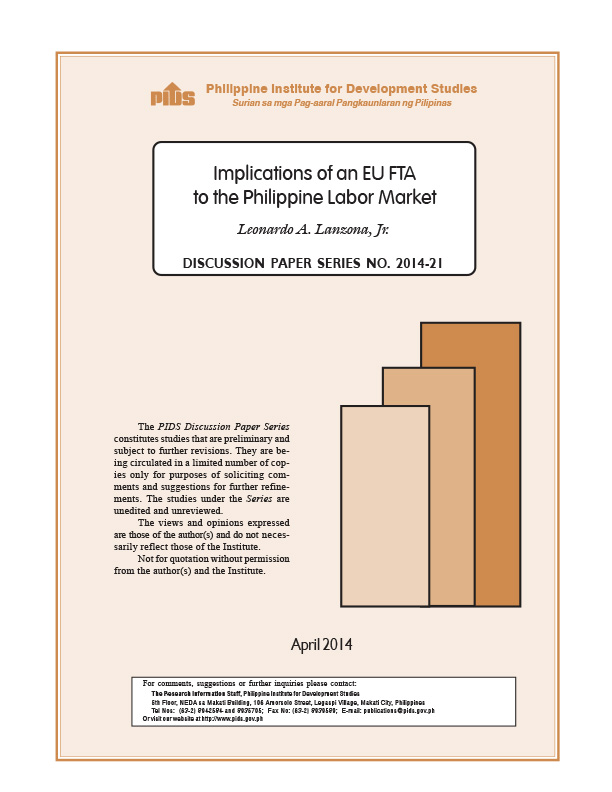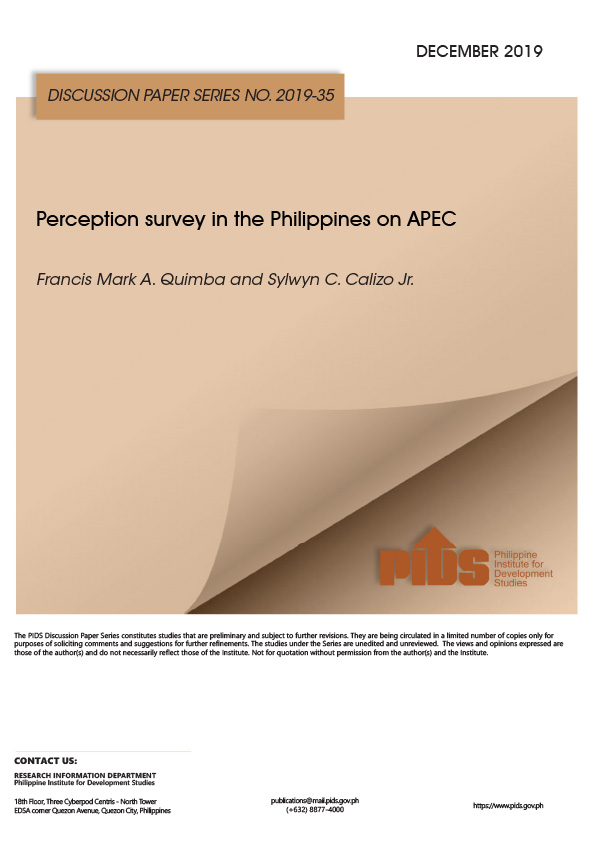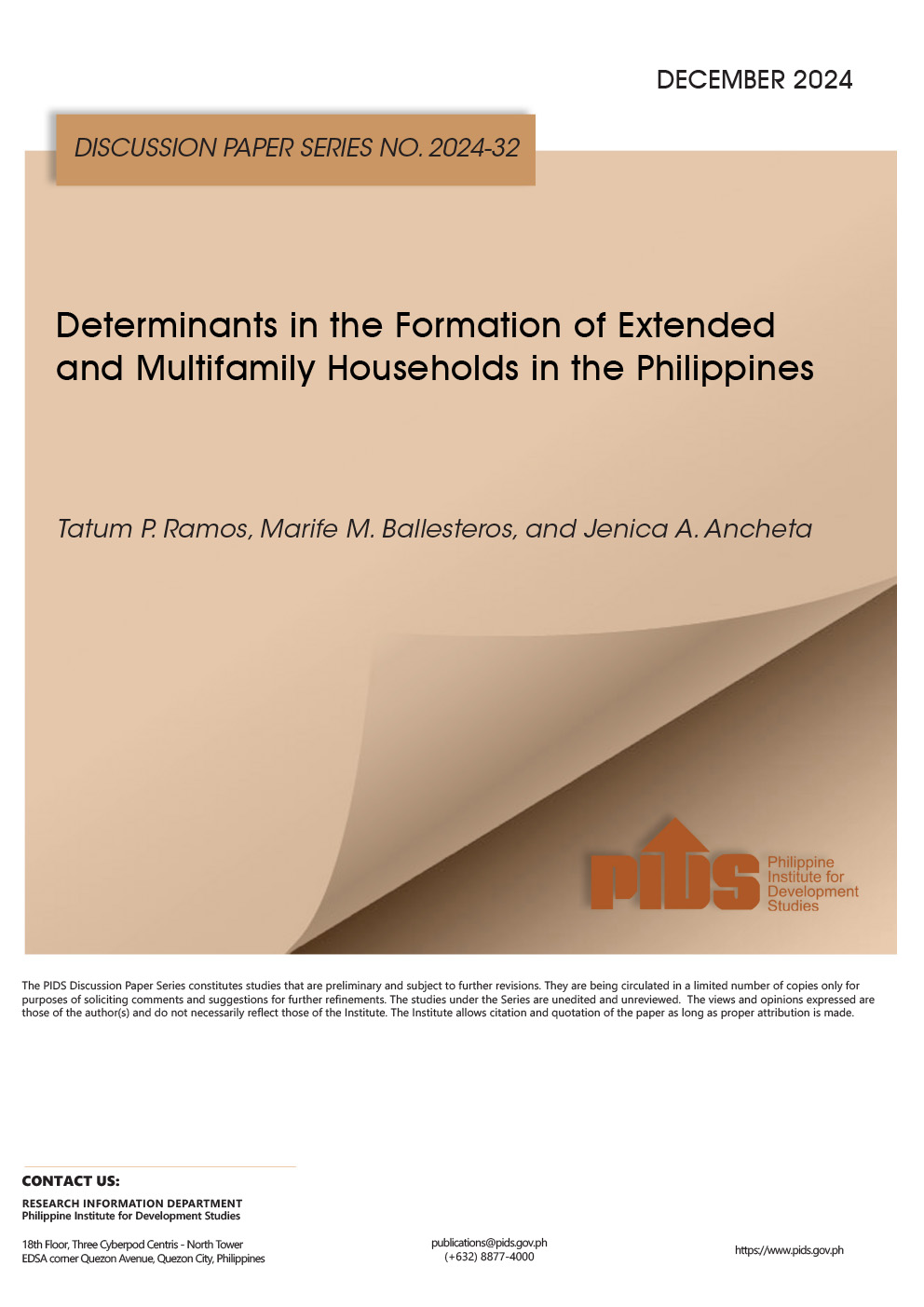The Philippines is currently negotiating a free trade agreement (FTA) with the European Union (EU). This paper is expected to shed light on these negotiations in terms of the possible effects of the FTA on the employment in particular. Conceptually, the effects of FTA on the labor market may come from two sources. The first is the intensification of free trade which can either be an opportunity or a threat to the workers, depending on whether the trading of goods and services are complementary or substitutable to the goods and services produced in the country. The second source is the proposed set of core labor standards which the EU can impose given the previous FTAs it has forged with other countries. These standards can result in making the country less competitive.
Analyzing the experience of the country with its previous FTAs with the ASEAN and Japan, the paper found that FTAs as a whole have a positive impact on employment. While there may be unemployment caused by the entry of more imports from other countries, the effect of the trade commitments found in FTAs is essentially to mitigate such negative effects. It is then proposed that the country should negotiate within the same rules and standards that are set in their previous FTAs and that appropriate taxes and subsidies should be imposed in order to counteract the negative effects of further trade and labor standards.
Citations
This publication has been cited 1 time
- Medalla, Erlinda M. and Veredigna M. Ledda. 2013. Philippines-Japan Economic Partnership Agreement (PJEPA): An initial ex-post review. Discussion Papers DP 2013-12. Philippine Institute for Development Studies.













